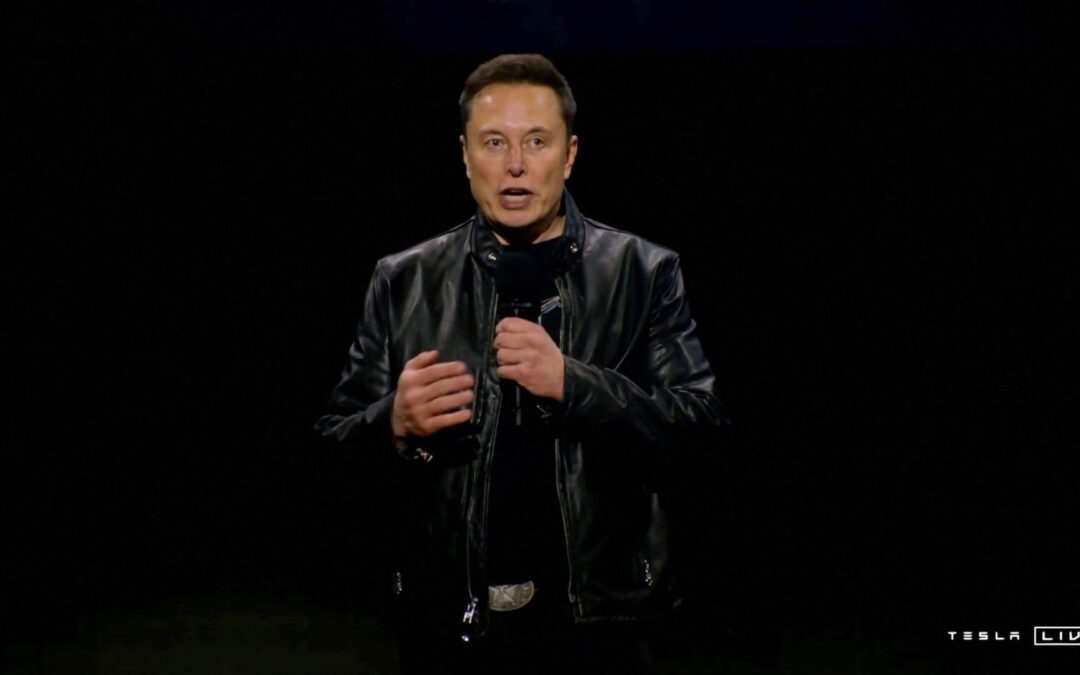Tesla CEO and X owner Elon Musk speaks during an unveiling event for Tesla products in Los Angeles on Oct. 10, 2024.
Tesla | Via Reuters
Tesla posted its fourth-quarter vehicle production and deliveries report on Thursday. Here are the key numbers:
Total deliveries Q4 2024: 495,570
Total production Q4 2024: 459,445
Total annual deliveries 2024: 1,789,226
Total annual production 2024: 1,773,443
Results for the quarter represented the first annual drop in annual delivery numbers for Tesla, which reported 1.81 million deliveries in 2023. It reported 484,507 deliveries in the fourth quarter of 2023.
Tesla shares were down more than 3% in pre-market trading Thursday.
Analysts had expected Tesla to report deliveries in the quarter of 504,770, including 474,000 Model 3 and Model Y EVs, according to a consensus of estimates compiled by StreetAccount. Tesla sent some investors a company-compiled delivery consensus of 506,763 vehicles, based on a survey of 26 analysts. A widely followed independent Tesla researcher, who publishes as Troy Teslike, predicted deliveries of 501,000.
Deliveries are the closest approximation of sales reported by Tesla but are not precisely defined in the company’s shareholder communications.
The fourth-quarter report comes after a huge late-year rally in Tesla’s stock, which finished 2024 up 63%. In mid-December, the shares reached a record, eclipsing their prior all-time high from 2021.
It was a big turnaround from the first quarter, when the stock plummeted 29%, its worst period since 2022, as the company contended with declining sales despite price cuts and incentives for buyers. On the company’s first-quarter earnings call in April, CEO Elon Musk told investors that while he expected “higher sales this year than last year,” the growth rate would slow from 38% in 2023.
The biggest story at Tesla in the back half of the year was Musk’s role in President-elect Donald Trump’s election campaign. Musk, the world’s richest person, poured in around $277 million to promote Trump and other Republican candidates, and spent weeks on the road campaigning in swing states.
Elon Musk speaks with U.S. President-elect Donald Trump at a viewing of the launch of the sixth test flight of the SpaceX Starship rocket, in Brownsville, Texas, U.S., November 19, 2024.
Brandon Bell | Via Reuters
Musk, who also runs SpaceX and xAI and owns social network X, has been tapped to co-lead an advisory group to the Trump administration that will aim to slash federal spending, personnel and regulations.
Sam Fiorani, a vice president at industry research group Auto Forecast Solutions, told CNBC in an email that Musk’s foray into politics may have “pulled his focus away from his core businesses.” However, the degree to which investors or EV buyers care won’t be reflected in Tesla’s numbers until the first quarter, he said.
Until recently, Tesla had been one of the only automakers mass producing battery-electric vehicles. The company now faces an onslaught of competition from domestic automakers, including General Motors, Ford and Rivian as well as BYD in China, Hyundai in Korea, and European auto giants BMW and Volkswagen.
Patrick George, editor in chief of InsideEVs, told CNBC that he thinks Tesla still does many things better than any other EV maker, especially when it comes to its charging network. But Tesla’s biggest operational challenge in the latest quarter was “the nuts-and-bolts job of being a car company.”
‘Piling up on used car lots’
Tesla has invested in a humanoid robotics initiative and chip development, and plans to produce a dedicated robotaxi and start a driverless ride-hailing service before 2027. While Musk and shareholders may not want to view Tesla as just a car company, most of the profits are still derived from vehicle sales.
George said that Tesla made a mistake not bringing “more affordable EVs in 2024,” and added that Cybertrucks — the company’s newest vehicle — are “piling up on used car lots.” The angular steel Cybertruck starts at around $80,000.
With competitors picking up market share in Europe, Tesla experienced a steep drop in sales in the region during the fourth quarter.
From January through the end of November, Tesla sold 283,000 vehicles in Europe, an approximately 14% decline from the same period a year earlier, according to registration data from the European Automobile Manufacturers’ Association, or ACEA. Registrations in Europe slid to 18,786 in November from around 31,810 a year earlier.
The company’s business in China was also pressured in the fourth quarter.
Fiorani said that while the Model Y is the second bestselling model in China, “its growth is failing to keep up with growth of the market.” Through November, sales of the Model Y were up more than 5% but overall EV sales in the country rose 8%, he said.
Meanwhile, BYD and other brands in China, including Chery, Li Auto, Jetour, LeapMotor and Aito, grew substantially faster than Tesla. BYD is also setting up plants outside of China and exporting prodigiously.
In North America, Tesla has remained dominant. The company offered a range of incentives and price cuts, even on its most popular Model Y SUV, during the fourth quarter to drive sales. Still, Tesla experienced a buildup of inventory.
During the fourth quarter, the company sent Cybertruck assembly line workers home for a few days, indicating that it may be looking to avoid flooding the market with too many of the vehicles.
Looking ahead to 2025, Musk said on an earnings call in October that Tesla expects to be offering lower-cost and autonomous vehicles in 2025, which should lead to “20% to 30% growth” over 2024.
WATCH: Chinese auto market could reach 55-60% EVs by end of 2025









